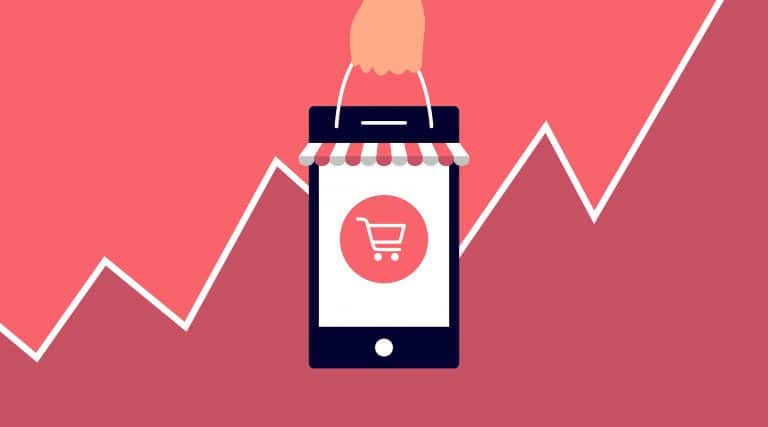Online marketplaces have revolutionized the way we shop and connect with businesses. With a vast array of products and services available at our fingertips, the challenge for online marketplaces is to stand out from the crowd and deliver a personalized experience to their customers. Harnessing the power of personalization has become a key strategy for online marketplaces to enhance customer satisfaction, increase engagement, and drive sales.
Personalization is the key to creating a more engaging and rewarding experience for your customers. When you personalize the shopping experience, you show your customers that you understand their needs and preferences. This can lead to increased sales, improved customer satisfaction, and a stronger brand reputation.
Understanding Personalization
Personalization in online marketplaces refers to the process of tailoring the shopping experience to the individual preferences, needs, and behaviors of each customer. It involves using data and technology to deliver relevant product recommendations, personalized content, and customized user interfaces. By understanding the unique characteristics of each customer, online marketplaces can create a more immersive and engaging environment, leading to increased customer loyalty and higher conversion rates.
Customized Recommendations
One of the most effective ways to personalize the shopping experience is through customized product recommendations. By analyzing a customer’s browsing and purchase history, online marketplaces can suggest products that align with their interests and preferences. These recommendations can be based on factors such as previous purchases, browsing patterns, demographics, and even real-time contextual information. By presenting customers with items they are more likely to be interested in, online marketplaces can significantly improve the chances of a successful purchase and enhance overall customer satisfaction.
Tailored Content
Another powerful aspect of personalization is the delivery of tailored content. Online marketplaces can curate content such as articles, blog posts, videos, and guides based on a customer’s interests and shopping behavior. By providing relevant and valuable information, marketplaces can educate customers, inspire them to explore new products or services, and ultimately drive sales. This approach not only helps customers make informed decisions but also builds trust and positions the marketplace as an authoritative source in their respective industry.
Seamless User Experience
Personalization extends beyond product recommendations and content. Online marketplaces can also personalize the user interface to enhance the overall shopping experience. This can involve adapting the layout, design, and functionality of the marketplace based on individual user preferences. For example, customers may have the option to customize their homepage, product filters, or search settings according to their specific needs. By allowing users to tailor their experience, online marketplaces can create a sense of ownership and familiarity, making customers feel more engaged and invested in the platform.
Targeted Marketing and Communication
Personalization can significantly enhance marketing efforts by delivering targeted and relevant messages to customers. Online marketplaces can leverage customer data to segment their audience and create personalized marketing campaigns. This can include personalized emails, notifications, and advertisements that address specific customer needs and preferences. By tailoring marketing communication, marketplaces can increase the chances of capturing the attention of their audience, driving traffic, and ultimately generating more sales.
The Importance of Personalization in Online Marketplaces
Personalization plays a vital role in the success of online marketplaces by providing a tailored and engaging shopping experience for customers. In the vast and competitive digital landscape, customers are inundated with options, and personalization allows marketplaces to stand out from the crowd. By understanding individual preferences, behaviors, and needs, online marketplaces can deliver relevant product recommendations, curated content, and a user interface customized to each customer. This level of personalization not only enhances customer satisfaction but also increases customer loyalty, engagement, and ultimately drives sales. Personalization creates a sense of connection and trust between the customer and the marketplace, making the shopping journey more seamless, enjoyable, and memorable. As technology continues to advance, the importance of personalization in online marketplaces will only grow, as it enables businesses to deliver exceptional and unforgettable experiences that keep customers coming back.
Benefits of Personalization in Online Marketplaces to Sellers
Increased Conversion Rates
Personalization in online marketplaces can significantly impact conversion rates for sellers. By delivering personalized product recommendations and targeted marketing messages, sellers can effectively capture the attention of potential buyers and increase the chances of conversion. When customers see products that align with their preferences and needs, they are more likely to make a purchase, leading to higher conversion rates for sellers.
Enhanced Customer Engagement
Personalization fosters a sense of engagement between sellers and customers in online marketplaces. When sellers provide personalized content, such as articles or guides tailored to customer interests, they create a connection that goes beyond a simple transaction. Engaged customers are more likely to interact with sellers, provide feedback, and develop brand loyalty, which can lead to repeat purchases and positive word-of-mouth recommendations.
Improved Customer Satisfaction and Loyalty
Personalization allows sellers to provide a seamless and delightful shopping experience for customers. By understanding their preferences and presenting them with relevant products, sellers enhance customer satisfaction. Satisfied customers are more likely to become loyal patrons, repeat buyers, and advocates for the seller’s brand. Building strong customer loyalty translates into long-term success for sellers in the competitive online marketplace landscape.
Higher Average Order Value
Personalization can drive higher average order values for sellers. By analyzing customer behavior and purchase history, sellers can offer personalized recommendations for complementary products or upsell opportunities. By presenting customers with items that complement their purchase or offer added value, sellers can encourage them to spend more, increasing the average order value and boosting revenue.
Enhanced Brand Perception
Personalization can help sellers differentiate themselves and create a positive brand perception. When sellers provide personalized experiences that cater to the unique preferences of their customers, it creates a favorable impression of their brand. Customers perceive sellers as attentive, customer-centric, and invested in their needs, leading to a stronger brand image and reputation.
The Power of Data-driven Insights
To implement effective personalization strategies, leveraging data-driven insights is essential. By analyzing customer data, including browsing behavior, purchase history, demographics, and even social media interactions, you can gain valuable insights into your customers’ preferences and interests. This data can inform your personalization efforts, enabling you to create targeted and compelling experiences that resonate with your audience.
10 Tips for Marketplace Owners to Harness the Power of Personalization
- Collect and Analyze Customer Data: Start by collecting relevant customer data such as purchase history, browsing behavior, demographics, and preferences. Utilize analytics tools to gain insights into customer patterns and identify opportunities for personalization.
- Implement Recommendation Engines: Invest in recommendation engines that can analyze customer data and provide personalized product recommendations. These engines can use collaborative filtering, content-based filtering, or hybrid approaches to suggest relevant items to customers, increasing the chances of conversions.
- Offer Customizable User Profiles: Allow customers to create user profiles where they can specify their preferences, interests, and favorite categories. This information can be used to tailor the shopping experience and provide personalized recommendations and content.
- Leverage Machine Learning and AI: Explore machine learning and AI technologies to automate and optimize personalization efforts. These technologies can help you analyze vast amounts of data, identify patterns, and deliver real-time personalized experiences to customers.
- Curate Tailored Content: Create and curate content that aligns with the interests and needs of your target audience. This can include blog posts, articles, videos, or expert guides. Tailored content not only engages customers but also positions your marketplace as a valuable resource in their shopping journey.
- Implement Dynamic Pricing: Personalize pricing based on factors such as customer behavior, demand, and purchase history. Dynamic pricing can be used to offer personalized discounts, special promotions, or bundle offers, incentivizing customers to make purchases.
- Optimize Search and Filtering: Enhance the search and filtering functionalities on your marketplace to accommodate personalized preferences. Allow users to save their search filters and create custom alerts for new products or price drops in their preferred categories.
- Utilize Social Proof and Reviews: Highlight social proof and customer reviews to personalize the shopping experience. Display recommendations or reviews from customers with similar interests or purchase histories to build trust and encourage conversions.
- Implement Segmented Email Campaigns: Leverage email marketing to deliver targeted messages to different customer segments. Segment your customer base based on preferences, browsing history, or purchase behavior, and send personalized emails with relevant product recommendations or exclusive offers.
- Continuously Test and Optimize: Regularly test different personalization strategies and measure their impact on customer engagement and conversion rates. Use A/B testing to compare the effectiveness of different personalization approaches and optimize your efforts accordingly.
How Cluster Can Help
By personalizing the shopping experience, businesses can create a more engaging and rewarding experience for each customer. Cluster offers marketplaces a powerful suite of data analytics and business intelligence tools. Book a demo now.




